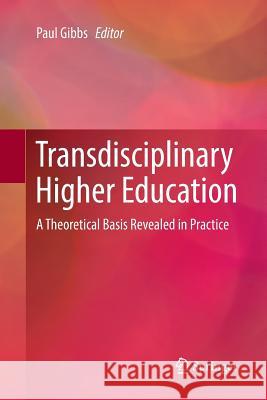Transdisciplinary Higher Education: A Theoretical Basis Revealed in Practice » książka
topmenu
Transdisciplinary Higher Education: A Theoretical Basis Revealed in Practice
ISBN-13: 9783319858470 / Angielski / Miękka / 2018 / 260 str.
Kategorie:
Kategorie BISAC:
Wydawca:
Springer
Język:
Angielski
ISBN-13:
9783319858470
Rok wydania:
2018
Wydanie:
Softcover Repri
Ilość stron:
260
Waga:
0.40 kg
Wymiary:
23.39 x 15.6 x 1.52
Oprawa:
Miękka
Wolumenów:
01
Dodatkowe informacje:
Wydanie ilustrowane











